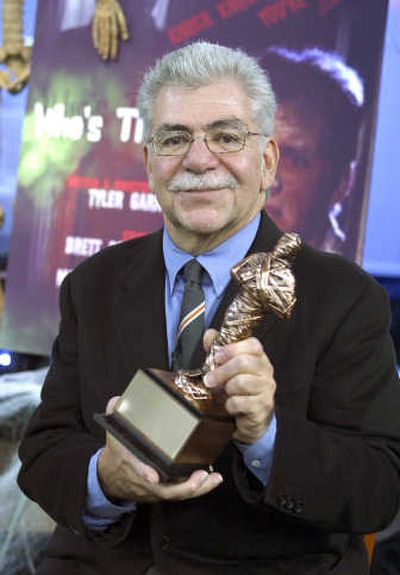In Passing

New York
Joel Siegel, movie critic
Joel Siegel, the Emmy Award-winning film critic and entertainment editor for ABC’s “Good Morning America” and WABC-TV in New York, died Friday.
Siegel, 63, who continued to work until two weeks before his death, died in New York after a long battle with colon cancer.
The mustachioed Siegel, who joined “Good Morning America” in 1981, was remembered by his ABC News colleagues for his wit and passion for the arts.
ABC anchor Charles Gibson described Siegel as “brilliant” and “a man of impeccable taste.”
“When Joel came into your office to talk about anything – it was going to be interesting and you were going to learn something,” said Gibson. “He had an inexhaustible supply of stories – most funny, many poignant, all with a point or a punch line.”
As entertainment editor for “Good Morning America,” Siegel interviewed scores of celebrities such as Paul Newman, Halle Berry, Brad Pitt, George Burns, Gene Kelly, Jack Lemmon and all four of the Beatles. His annual Oscar broadcast, “Joel Siegel’s Road to the Academy Awards,” aired for 10 years on WABC-TV and was syndicated around the world.
Washington
Frank A. Taylor, museum director
Frank A. Taylor, 104, the founding director of the Smithsonian Institution’s National Museum of American History, which has become the permanent home of such popular treasures as the ruby slippers from “The Wizard of Oz” and Abraham Lincoln’s top hat, died of respiratory failure June 14 in Washington, D.C.
In 1964, Taylor helped launch what has become the institution’s third-most popular museum. About 3 million people passed through the doors annually, attendance surpassed only by the Air and Space and Natural History museums.
Taylor was responsible for modernizing exhibits throughout the Smithsonian. He also established a program of research and scholarly publication for the old National Museum of History and Technology.
Bronxville, N.Y.
Bill Barber, jazz tuba player
Bill Barber, a musician who helped refashion the jazz tuba from its predictable oompah passages to suit the complex melodies and rhythms of Miles Davis and other postwar jazz modernists, died June 18 at his home in Bronxville, N.Y. He had congestive heart failure. He was 87.
A fixture of many early jazz bands, the tuba was largely reduced to a jazz relic by the early 1930s as sound technology improved. The upright bass took the place of the booming brass instrument.
Yet a core of post-World War II arrangers, notably Gil Evans, admired the tuba’s tone color possibilities. They advocated its use in small jazz groups more as a melodic instrument than for any rhythmic pace keeping.
The New Grove Dictionary of Jazz credited Barber, who took a central role in Evans’ experiments in sound with trumpeter Davis, as probably the first tuba player “to take solos in a modern jazz style and to participate in intricate ensemble passages.”